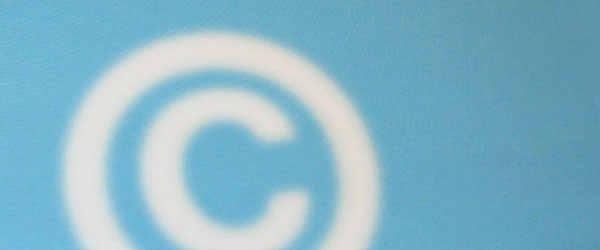This article is more than 5 years old.
In order to “promote the Progress of Science and useful Arts, by securing for limited Times to Authors and Inventors the exclusive Right to their respective Writings and Discoveries,” Congress enacted the first version of the Copyright Act in 1790¹. This act granted exclusive rights to authors to publish and sell copies of maps, books, and charts for a period of 14 years, before passing into the public domain, after which anyone would have the ability to use their material in it’s original form, change it, grow it and advance the culture. The original Copyright Act of 1790 has undergone considerable changes and addendums; the most recent address issues with emerging formats of information dissemination, continuing to define intellectual property, and extending the life of original copyright ownership to it’s current length of “life of the author plus 70 years”. However, the last full revision of The Copyright Act occurred in 1976, long before MP3 files, electronic media, or streaming video. The questions must be asked, then, what is the future of The Copyright Act in the Digital Age? Is the Copyright Act of 1976 still relevant in an era of digital preservation, user-generated content, distance-learning education, and the recent Google Book settlement? Is copying the right metric for judging infringement? Will the Digital Consumer’s Bill of Rights help codify the law with regard to digital uses of content?
The answers to the questions are still unclear. Recent legislation related to copyright has had the effect of increasing rights to copyright holders and limiting rights of those who would use the work. But copyright law still provides for “fair use” which allows for use of material held under copyright as long as certain standards related to the purpose of using the work, the amount of the work users are utilizing, the nature of the work needed, and the effect on the marketplace are met. Even with these 4 standards, there is much left up to interpretation, leaving those who would use others works to advance culture and education to wonder “am I infringing?”
Even in the realm of education, which copyright law recognizes as a legitimate use of copyrighted materials (provided the other three provisions are also met), there are limits to an educator’s ability to use the work of others to forward knowledge. In order to have material “copied” in course reserves, or in course management software, faculty or librarians need to ensure that copyright guidelines are not ignored. Copyright holders believe copyright payments should be made to the rightsholders when putting materials in coursepacks that are used indefinitely. Currently, in the case against Georgia State University, three publishers are suing the University for putting material up on electronic reserves without paying for copyright. Georgia State University asserts that the use of this material is completely within the bounds of “fair use.” Who will win in this important question? The jury is literally still out. Stay tuned.
¹ “The Constitution of the United States,” Article 1, Section 8, Clause 8.


3 Comments on ‘Copyright and Academics’
As you say, U.S. copyright is in such a state of flux right now. As a composer, I want every church, school, and community or professional ensemble to observe copyright law by purchasing copies of my music that they perform. As a researcher compiling a critical edition of songs written between 1877 and 1941 by an American composer, I’m negotiating permissions from several publishers, none of which are easy to work with.
It’s tough on both ends of copyright!
The Intellectual Property Law Journal at our law school recently held a symposium on this topic and more, you can hear the lectures online and read the blogs related to it at: http://ipjournal.law.wfu.edu/blog/
Check it out!
The Intellectual Property Law symposium held on March 5 served as inspiration for this Future Of blog posting. Speakers presented compelling insights into the legal, artistic, economic, and moral dilemmas that the current Copyright Act brings to light. It is our hope that by continuing conversations and expanding copyright education, we can develop a copyright act that protects the rights of the creator but also does not limit the creative output of future authors.